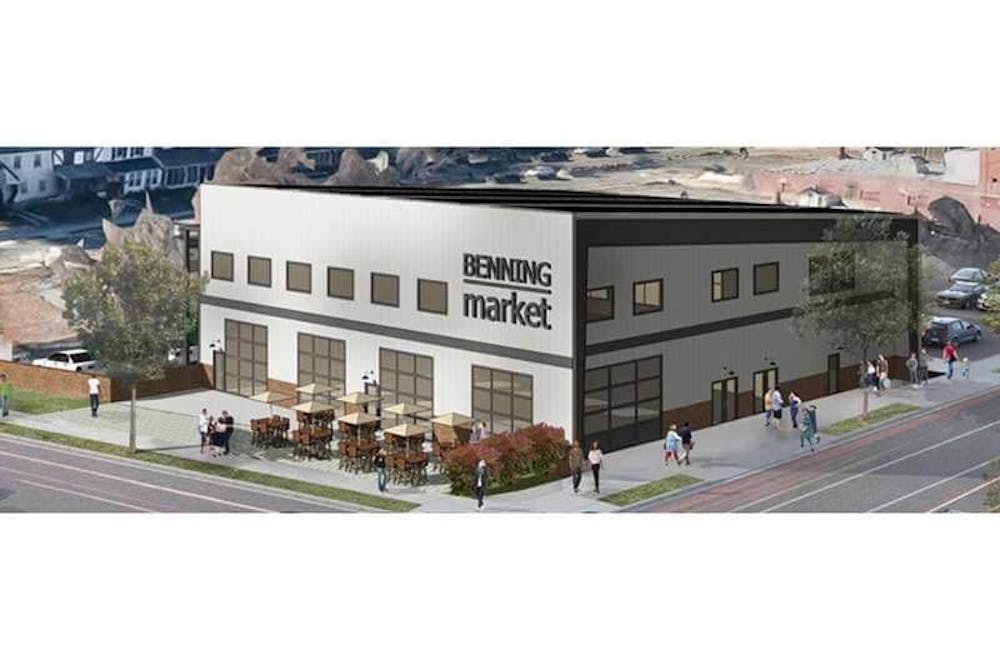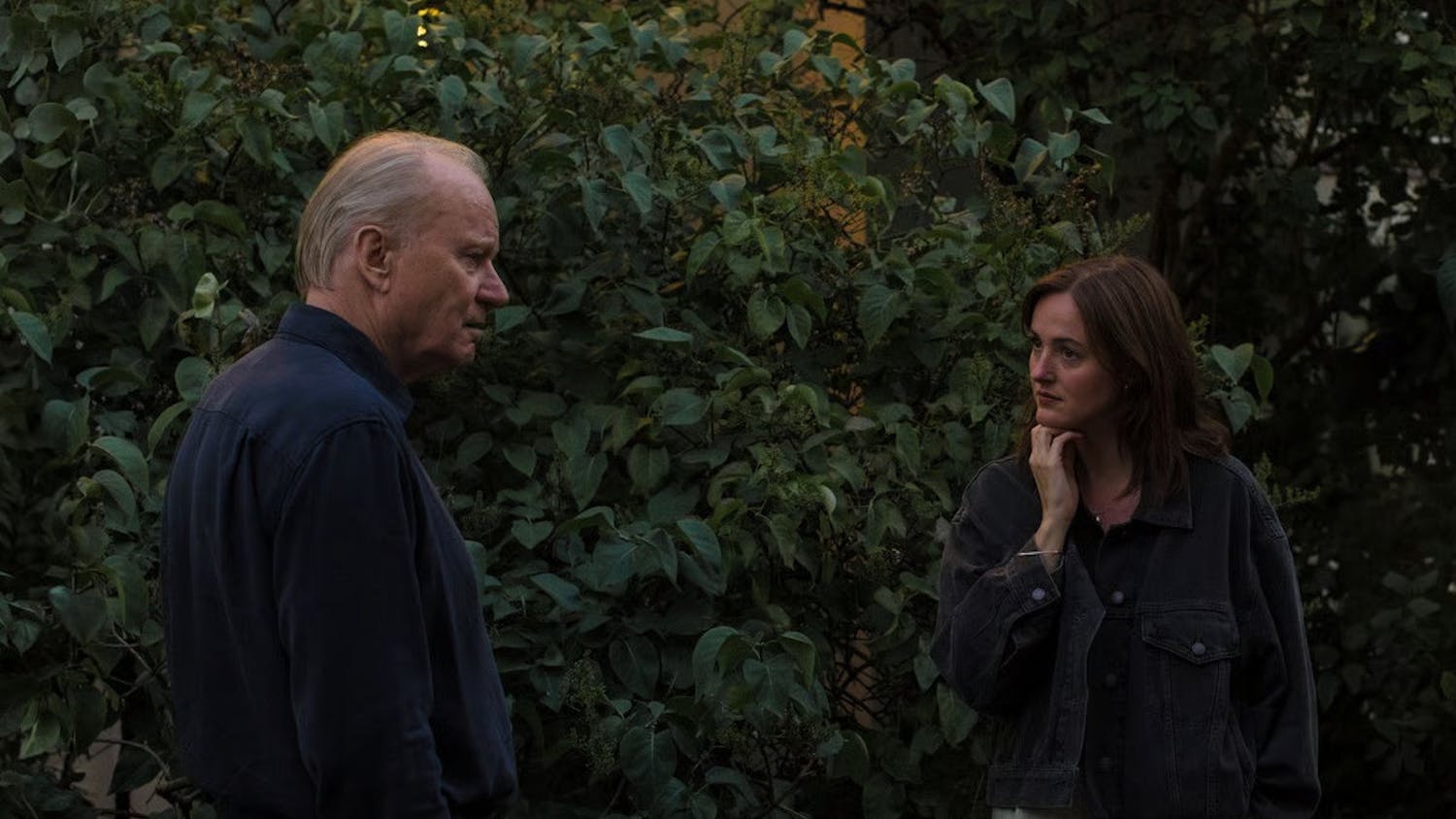In 2017, Mary Blackford along with a few friends and volunteers were given a dilapidated building to house their food market pop-up in Ward 7, the southeast area of the District. They fixed up the building, added a mural and kept the pop-up going through the summer with 10 local food vendors.
Now, Blackford is moving onto bigger plans to address food insecurity in her community. Market 7 will open in 2021 in a 7,000-square-foot space, with a grocery store, bar, cafe and food from across the African diaspora.
“Sometimes we really do have to turn lemons into, not even just lemonade, but a 10-course meal,” Blackford said.
Blackford’s interest in food justice began with a change of diet. She became a vegetarian shortly after college and suddenly found that she needed to add gas costs to her grocery budget to buy fresh produce.
“I had to travel outside of my community to get access to better quality food,” Blackford said. “We are plagued with lots of fast food, lots of corner stores.”
According to a report by D.C. Policy Center, there were only three grocery stores east of the Anacostia River as of 2017 — two in Ward 7 and one in Ward 8. The report found that food insecurity in the District is tied to poverty and transportation. More than three-quarters of D.C.’s food deserts are in Wards 7 and 8, where poverty rates are high and few people own cars.
While the technical term usually applied to such areas of high food insecurity is “food desert,” Blackford uses a different term.
“A desert is kind of like a natural occurrence,” Blackford said. “We live in something like a ‘food apartheid,’ which really takes into account the long history of discriminatory practices against communities of color, particularly Black communities.”
When Blackford first began advocating to address food insecurity in Wards 7 and 8, she was met with resistance. Many people thought that the average median income in this area was too low to be considered for additional supermarkets, she said.
“We’re constantly kind of working against those metrics because they were saying, ‘people at that level just don’t buy fresh food, and they don’t want fresh food, and they can’t afford it and all they can afford is fast food,’” Blackford said. “These are all things that have been said to me over time, and it’s just not true.”
Blackford, working with Sibley Memorial Hospital, conducted surveys across the District that proved otherwise. She said the surveys found that a significant number of residents from Ward 7 get their groceries from Ward 6 and Maryland. The vast majority of people surveyed said they wanted to see more fresh food accessible in their community, Blackford said.
“We had to dispel a lot of myths in our community,” Blackford said.
Blackford said she always wanted to be an entrepreneur and serve her community by promoting and helping local businesses. She did not, however, expect to be drawn to food justice.
Her idea for Market 7 sprang to her on a visit to Ghana.
“I saw people come together and make collective marketplaces in communities that didn’t have a lot of money, but they had full autonomy of their community through centralized marketplaces for farmers and crafters and other types of merchants,” Blackford said.
With inspiration from these marketplaces abroad, Blackford decided a similar community gathering could happen in Ward 7, too. She began with a small pop-up, working with the urban farming community and has since worked with over 60 black-owned businesses, she said.
Blackford does all she can do to uplift other Black-owned businesses to “fill in those gaps of the disenfranchisement,” she said. Blackford even teamed up with Google to provide digital training to entrepreneurs in Wards 7 and 8.
Blackford said that the urgency of better food access is essential because “what you put in your body, that’s your medicine.”
Earlier this summer, Blackford won the Essence, Pine-Sol Build Your Legacy nationwide contest that awarded her $150,000 for Market 7. She was backed by many in the D.C. community; Mayor Muriel Bowser even tweeted her support for Market 7 for the contest.
Blackford’s work in food justice is aimed at directly supporting the community where she lives and grew up.
“It’s almost my ministry,” she said. “I just want to make sure that we have all the things we need to live the freest, most liberated life that we possibly can because we deserve it, just like anybody else does.”
Working with and supporting local urban farmers and local businesses will be pivotal to continuing the fight for food justice, Blackford said. Market 7 is a start for this type of change toward ending food insecurity east of the Anacostia River, and it may have potential to grow.
“I definitely see Market 7 being a model that can be replicated in other areas that are also experiencing food apartheid,” she said.
The plot of land where Market 7 will sit is currently empty. Blackford and her team are in the process of building the space and picking vendors.
Shutdowns due to the coronavirus pandemic have not slowed down progress for Market 7, but they have hindered Blackford’s ability to meet with the community. However, she still expects community involvement in Market 7 operations.
When faced with adversity in her work in food justice, Blackford turns to those around her for support and inspiration. For her, action taken to address food insecurity is born out of love and a desire to provide and care for the people in her area.
“I’m the type of person, when I take care of my community, my community takes care of me,” Blackford said. “We’re all responsible for one another, so I wanted to see that all of the elders in our community, all of the kids in our community, that they had fresh, sustainable food to eat.”





